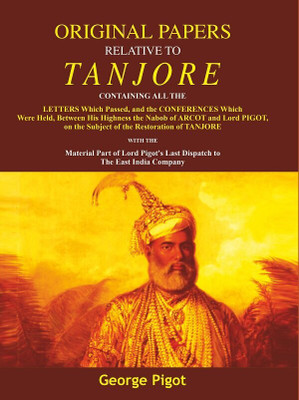Original Papers Relative to Tanjore: Containing All the Letters Which Passed, and the Conferences Which were Held, Between His Highness the Nabob of Arcot and Lord Pigot, on the Subject of the Restoration of Tanjore with the Material Part of Lord Pigot's Last Dispatch to The East India Company [Hard
Quick Overview
Product Price Comparison
About The Book: The present Nabob succeeded his father, in his affection for the English as well as in his Government. He had done them the mod influential Services, when his father was alive; he saved them, in a manner, from destruction, after his father's death. He supported the whole expense of the war on the coast of Coromandel; he advanced money for the expedition to Calcutta, which procured for us the kingdom of Bengal, he defrayed the expense of the siege of Pondicherry, and thus broke the power of the French in Hindostan. The friends of the English were his friends; he made their enemies his own, he communicated with them in all his councils he made them partners in his authority, his power, and his resources. About The Author: George Pigot, 1st Baron Pigot (4 March 1719 ŌĆō 11 May 1777) was twice the British President of the British East India Company. Pigot was the eldest son of Richard Pigot of Westminster, by his wife Frances, daughter of Peter Goode, a Huguenot who had come to England in the late seventeenth century. Frances was a "tirewoman" to Queen Caroline. His brothers were Admiral Hugh Pigot (1722ŌĆō1792) and Sir Robert. Pigot entered the service of the East India Company in 1736, at the age of 17; after nineteen years he became governor and commander-in-chief of Madras in 1755. Having defended the city against the French in 1758-1759 and occupied Pondich├®ry on behalf of the company, he resigned his office in November 1763 and returned to the Kingdom of Great Britain, being made a baronet in 1764. After selling the family seat of Peplow Hall, Shropshire, he purchased Patshull Hall, Staffordshire, in 1765 for ┬Ż100,000. That year he obtained the seat of Wallingford in the Parliament of Great Britain, which he retained until 1768. In 1766 he was created an Irish peer as Baron Pigot, of Patshull in the County of Dublin. From 1768 until his death he sat in the British House of Commons for Bridgnorth. Pigot was created an LL.D. of the University of Cambridge on 3 July 1769.

